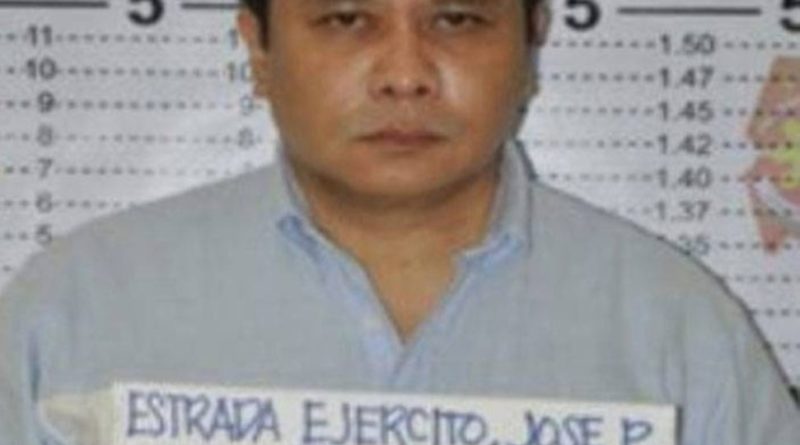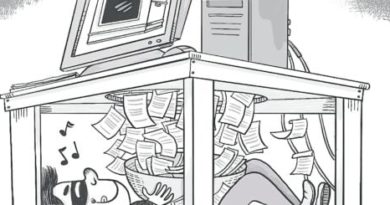OPINION-COLUMNS | Jinggoy criminal conviction a watershed, historic in building a real rule of law – First of 2 parts
First of 2 parts
THE conviction for bribery last Friday of Sen. Jose “Jinggoy” Estrada by the Sandiganbayan’s 5th Division is a watershed in the history of our nation’s efforts to build its rule of law, in which nobody, not the politically or economically powerful, is above the law.
The decision gives us much hope that even in this land ruled by oligarchs, the long arm of the law — at least sometimes — reaches the criminal, no matter how powerful he is.
Jinggoy would now be the highest official convicted of a major crime — after his father, the ousted president, Joseph “Erap” Estrada, that is, who was convicted of plunder on Sept. 12, 2007, but who subsequently was given executive clemency a month after.
Read the Sandiganbayan’s 396-page decision (accessible at the Sandiganbayan website), which was based on over 300 witnesses’ testimonies and on, by my estimation, over 100,000 pieces of documents, and you’d agree with me that there is no way Estrada can have his conviction reversed through an appeal to that anti-graft special court or to the Supreme Court.
Reading the decision, the Sandiganbayan even had very high standards for proof of guilt of the charges.
Estrada is finished, kaput. Hell will have to freeze over before he can escape prison. His 86-year-old father Joseph — from whom he has drawn all of his political power — has lost all of his political influence to reverse his conviction.
Bold
The nation owes a lot to the three bold justices who made the decision: the division’s chairman, Fael R. Lagos, and its two associate justices, Maria Theresa Mendoza-Arcega and Maryan E. Corpus-Mañalac. Their decision is in contrast to the Sandiganbayan 1st Division’s acquittal by a split vote of 3 to 2 in July 2021 of Sen. Ramon “Bong” Revilla Jr. for his involvement in the same pork-barrel scam, in which prosecutors presented very similar arguments and evidence used in the Estrada case.
Quite curiously, the two divisions placed the guilt, other than on the scam mastermind Janet Lim Napoles, on the two senators’ assistants, believing their claims that these lowly officials acted independently, and that they were not aware of their corrupt activities. Can you believe that?
In the case of Estrada, it was his deputy chief of staff Pauline Labayen, who, however, has been at large since 2014. I do hope there has been no foul play, and here and that she will appear soon — and be state witness to convict the real culprit or culprits.
In the case of Revilla, it was his staff, Richard Cambe, who was instead convicted of plunder while his boss was acquitted. Cambe died in 2021 in the Bilibid prison, purportedly of a stroke. It is dangerous it seems, to be a close assistant of a senator.
Senate
The 19th Senate has a chance of earning a place in history — as an institution that helped build our justice system — by kicking out Estrada on the grounds that the decision sentenced him “to suffer the penalties of suspension and public censure, with the accessory penalties of suspension from public office, from the right to follow a profession or calling, and that of perpetual special disqualification from the right of suffrage.”
The quo warranto principle that the Supreme Court used to oust its then Chief Justice Maria Lourdes Sereno could be invoked in Estrada’s case — “that his election in 2016 is void as he had committed crimes in 2004-2012, which disqualifies him from public office, even if it was discovered only in 2024.
Estrada’s half-brother Sen. JV Ejercito proved to be above his colleagues in his trust in our justice system when he said in a press statement right after the conviction was announced: “The Sandiganbayan has handed down its verdict. I urge everyone to respect the wisdom and fairness of our justice system. Our justice system, despite its imperfection, is there to maintain law and order, protect our rights, and provide justice.”
Estrada’s conviction was over his involvement in the infamous pork barrel scam from 2012 to 2014. Estrada, together with his deputy chief of staff Labayen, the brains of the scam, Napoles, and her representative John Raymond de Asis, were accused nine years ago in 2014 of siphoning off P180 million in government funds intended to benefit the poor.
Scam
The scam involved 28 legislators’ receiving hundreds of millions of pesos in kickbacks for directing their pork barrel allocations (officially called the Priority Development Assistance Fund) to non-existent projects set up by Napoles, who has been in jail since 2013 and has since been convicted of the crime of plunder in three cases involving the scam. Estrada was charged for pocketing P183 million in such pork-barrel funds, for his role in getting government agencies to fund “ghost” projects.
Estrada the other day pronounced himself unbothered by the conviction — several media outlets even spinning it as his vindication — since he was acquitted of the original charge of plunder. Estrada said he was “confused” by the ruling that acquitted him of plunder but convicted him of bribery, which he said he hadn’t been charged with.
Estrada was merely demonstrating his widely rumored limited level of mental acuity. The Plunder Law merely set the threshold of P50 million for one to be convicted of the charge. If an accused is proven to have accumulated in ill-gotten wealth an amount less than that, say, for instance, P40 million, he cannot be convicted for plunder — which imposes the maximum penalty of lifetime imprisonment — but only of the crimes he committed in accumulating the ill-gotten wealth.
Rule 120
The court explained: “The accused may still be convicted of a lesser offense proved by the prosecution under the variance doctrine, which allows the conviction of an accused for a crime proved that is different from but necessarily included in the crime charged. Section 4, Rule 120 of the Revised Rules on Criminal Procedure provides that when there is variance between the offense charged in the complaint or information and that proved, and the offense as charged is included in or necessarily includes the offense proved, the accused shall be convicted of the offense proved which is included in the offense charged, or of the offense charged which is included in the offense proved.”
The prison cell won’t be unfamiliar to Estrada when the court finally orders his jail sentence to be carried out. He has been detained twice on corruption charges, first in 2001 together with his father for graft, involving the tobacco excise tax proceeds, and was released on bail after two years. His second stint was in 2014 for involvement in the pork barrel scam. He was released from jail in 2017.
The long arm of the law may have finally caught up with him. My faith in this country is being restored.
Facebook: Rigoberto Tiglao
X: @bobitiglao
Archives: www.rigobertotiglao.com
Book orders: www.rigobertotiglao.com/shop
.

@[email protected]



 Memento Maxima Digital Marketing
Memento Maxima Digital Marketing






